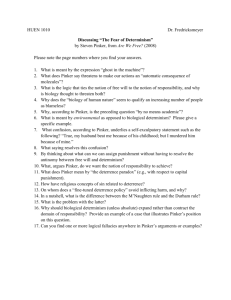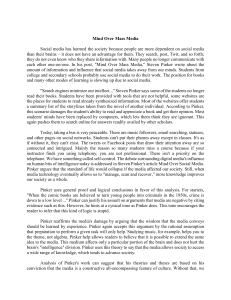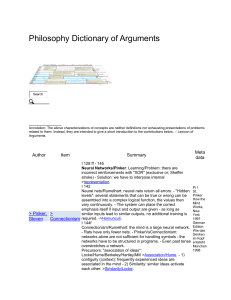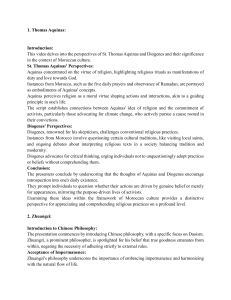TOK Notes: February 5, 2003 By Mary Ellen Pozo
advertisement
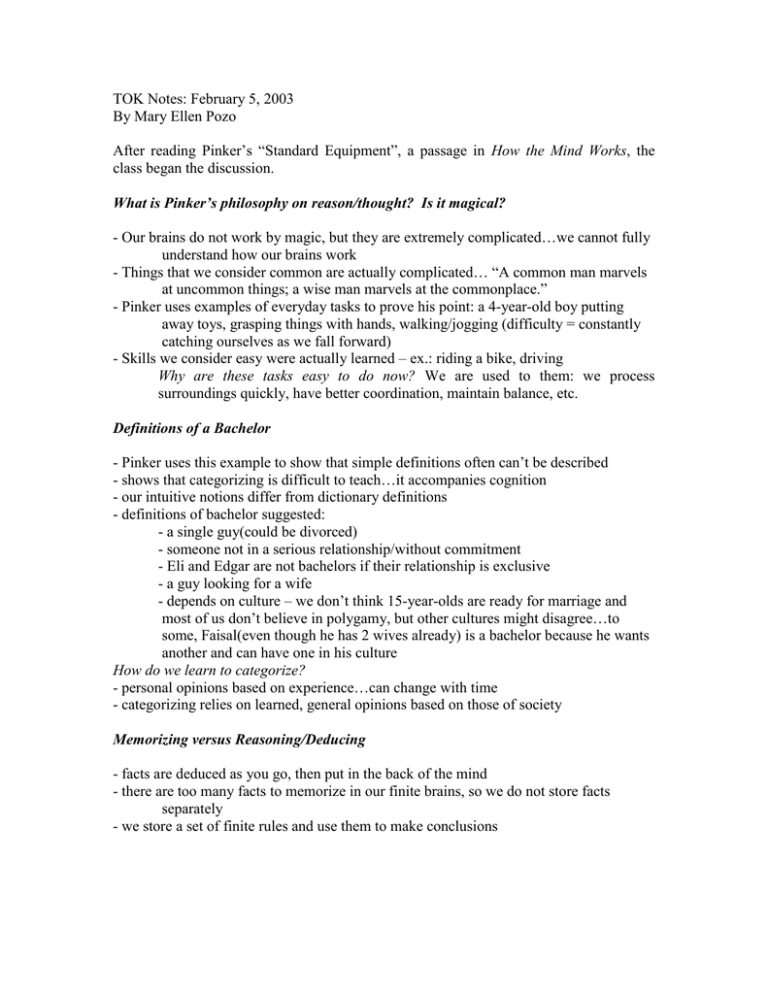
TOK Notes: February 5, 2003 By Mary Ellen Pozo After reading Pinker’s “Standard Equipment”, a passage in How the Mind Works, the class began the discussion. What is Pinker’s philosophy on reason/thought? Is it magical? - Our brains do not work by magic, but they are extremely complicated…we cannot fully understand how our brains work - Things that we consider common are actually complicated… “A common man marvels at uncommon things; a wise man marvels at the commonplace.” - Pinker uses examples of everyday tasks to prove his point: a 4-year-old boy putting away toys, grasping things with hands, walking/jogging (difficulty = constantly catching ourselves as we fall forward) - Skills we consider easy were actually learned – ex.: riding a bike, driving Why are these tasks easy to do now? We are used to them: we process surroundings quickly, have better coordination, maintain balance, etc. Definitions of a Bachelor - Pinker uses this example to show that simple definitions often can’t be described - shows that categorizing is difficult to teach…it accompanies cognition - our intuitive notions differ from dictionary definitions - definitions of bachelor suggested: - a single guy(could be divorced) - someone not in a serious relationship/without commitment - Eli and Edgar are not bachelors if their relationship is exclusive - a guy looking for a wife - depends on culture – we don’t think 15-year-olds are ready for marriage and most of us don’t believe in polygamy, but other cultures might disagree…to some, Faisal(even though he has 2 wives already) is a bachelor because he wants another and can have one in his culture How do we learn to categorize? - personal opinions based on experience…can change with time - categorizing relies on learned, general opinions based on those of society Memorizing versus Reasoning/Deducing - facts are deduced as you go, then put in the back of the mind - there are too many facts to memorize in our finite brains, so we do not store facts separately - we store a set of finite rules and use them to make conclusions How do people learn material? - math example - through practice and understanding basic idea of problems - rules applied to virtually any problem Difficulty of emulating human actions - It takes too long to process all the facts…for humans it comes naturally - We must consider the relevancy of certain ideas
